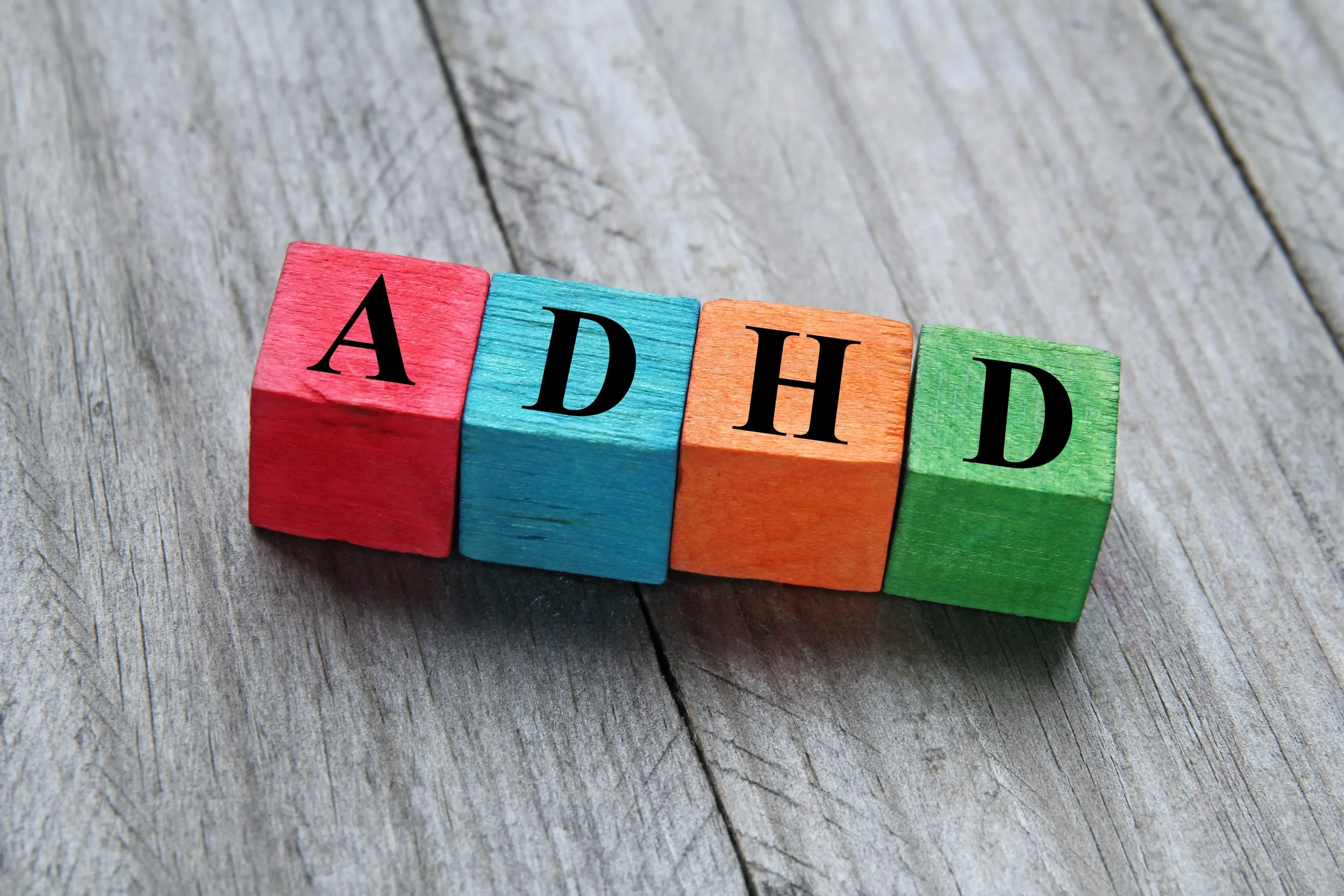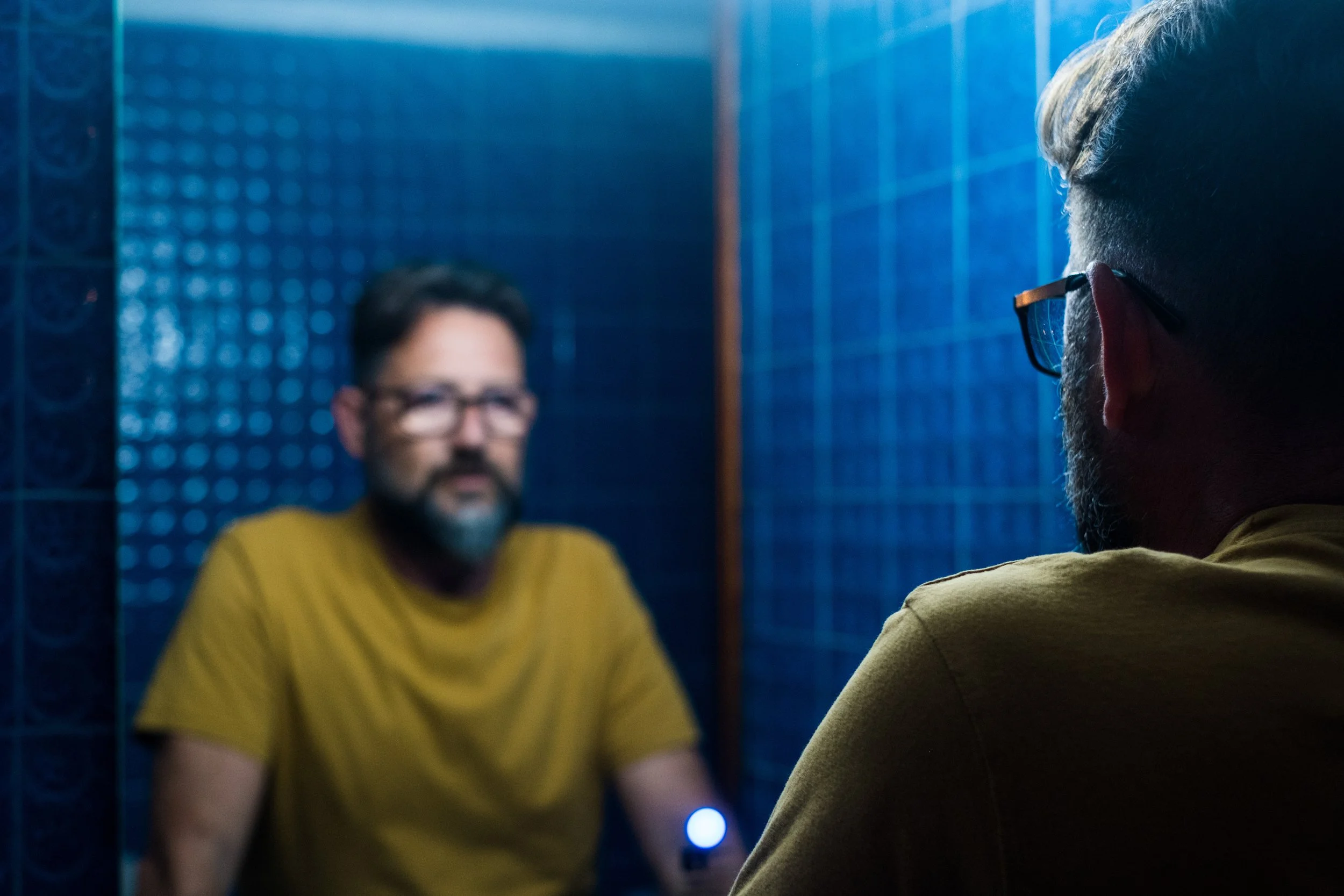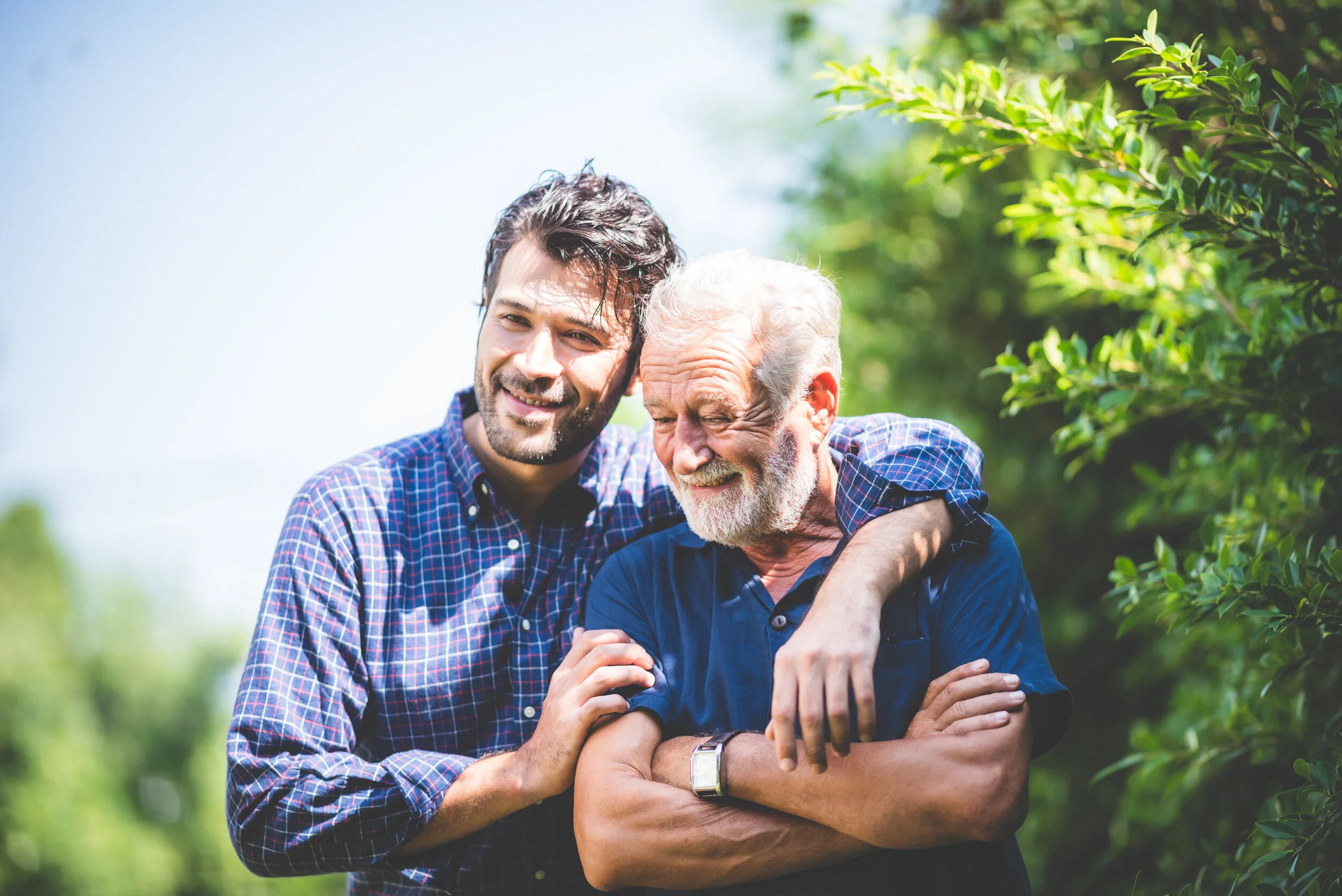
Integrating Nutrition and Lifestyle for Mental Health: A 2025 Update
Mental health disorders such as depression, anxiety, bipolar disorder, and ADHD are prevalent, affecting millions globally. Recent research underscores the significant role of nutrition and lifestyle interventions in managing these conditions, offering complementary approaches to traditional pharmaceutical treatments.
Mental health disorders such as depression, anxiety, bipolar disorder, and ADHD are prevalent, affecting millions globally. Recent research underscores the significant role of nutrition and lifestyle interventions in managing these conditions, offering complementary approaches to traditional pharmaceutical treatments.
🌱 Nutritional Psychiatry: A Growing Field
Nutritional psychiatry examines how dietary patterns and nutrients influence mental health. Studies indicate that dietary interventions can alleviate symptoms of depression and anxiety. For instance, a meta-analysis revealed that dietary interventions significantly reduced depressive symptoms compared to control conditions.
Furthermore, a comprehensive review highlighted the potential of specific nutrients, such as omega-3 fatty acids and B vitamins, in managing mood disorders.
🥗 The Mediterranean Diet: A Protective Pattern
The Mediterranean diet, rich in fruits, vegetables, whole grains, healthy fats, and lean proteins, has been associated with improved mental health outcomes. Adherence to this diet correlates with lower levels of depression and anxiety.
Conversely, high consumption of ultra-processed foods has been linked to increased risk of mental health issues, emphasizing the importance of dietary choices in mental well-being.
🍬 Sugar and Addiction: Implications for Mental Health
Excessive sugar intake can impact brain chemistry, potentially leading to addictive behaviors. Research suggests that sugar consumption activates dopamine and opioid pathways in the brain, similar to addictive substances.
Additionally, low dopamine levels associated with sugar withdrawal may contribute to cravings and continued consumption, highlighting the need for mindful dietary habits.
💤 Sleep: A Cornerstone of Mental Health
Quality sleep is crucial for mental health. Studies indicate that sleep disturbances are bidirectionally related to mood disorders, with poor sleep contributing to and resulting from conditions like depression and anxiety.
Implementing good sleep hygiene practices—such as maintaining a consistent sleep schedule, creating a restful environment, and limiting screen time before bed—can improve sleep quality and, by extension, mental health.
🏃♀️ Exercise: Enhancing Mood and Cognitive Function
Regular physical activity has been shown to elevate serotonin levels and regulate stress hormones, contributing to improved mood and cognitive function. Engaging in enjoyable activities, setting achievable goals, and exercising with a partner can enhance adherence and overall mental health benefits.
🧠 Integrating Approaches for Optimal Mental Health
Combining nutritional interventions with lifestyle modifications can accelerate therapeutic outcomes. For example, a ketogenic diet has shown promise in helping stabilizing mood and cognitive function in individuals with bipolar disorder.
Collaborating with healthcare providers trained in nutritional and integrative interventions can help individuals identify essential nutrients, develop personalized dietary strategies, and incorporate lifestyle changes to support mental health.
If you are interested in taking the next step in your mental and physical health, I have training in nutritional and integrative interventions. Give our office a call at 309-713-1485 or email info@summitfamily.net. I look forward to finding solution together!
Sources:
Opie RS, O’Neil A, Itsiopoulos C, et al. The impact of whole-of-diet interventions on depression and anxiety: a systematic review of randomised controlled trials. Public Health Nutr. 2015;18(11):2074-2093. PMC6455094
Jacka FN, O’Neil A, Opie R, et al. A randomised controlled trial of dietary improvement for adults with major depression (the “SMILES” trial). BMC Med. 2017;15:23.
Harvard Health Publishing. Mediterranean diet may help ease depression. 2023.
Hall KD, et al. Ultra-processed diets cause excess calorie intake and weight gain: an inpatient randomized controlled trial of ad libitum food intake. Cell Metab. 2019;30(1):67-77.
Lenoir M, et al. Intense sweetness surpasses cocaine reward. PLoS One. 2007;2(7):e698.
Kessler RC, Bromet EJ. The epidemiology of depression across cultures. Annu Rev Public Health. 2013;34:119-138.
Stanford Medicine. Sleep and mental health: What the science says. 2025.
Verywell Mind. What is sleep hygiene? 2024.
News-Medical.net. UCLA Health launches study on ketogenic diet for bipolar disorder in youth. 2025.
The Guardian. Metabolism and diet linked to bipolar depression, scientists say. 2024.
Dating in 2025: What to Look For in a Partner
Dating in 2025 looks a lot different than it did even five years ago. With shifting social dynamics, evolving cultural norms, and the ever-present influence of technology, finding a meaningful relationship can feel both exciting and overwhelming. Whether you’re swiping on apps, reconnecting in person, or simply exploring what you want in a partner, the most important question remains the same: Who should I date?
Dating in 2025 looks a lot different than it did even five years ago. With shifting social dynamics, evolving cultural norms, and the ever-present influence of technology, finding a meaningful relationship can feel both exciting and overwhelming. Whether you’re swiping on apps, reconnecting in person, or simply exploring what you want in a partner, the most important question remains the same: Who should I date?
As a therapist, I see firsthand how powerful our relationship choices are for our mental and emotional health.
The good news is that “who to date” is less about finding the perfect person and more about finding someone who helps you feel safe, supported, and true to yourself.
Qualities to Look For in 2025
1. Emotional Availability
In 2025, we’re moving past surface-level attraction alone. Someone who can communicate feelings openly, handle conflict with care, and show up consistently is far more valuable than someone who checks every box on paper. Emotional availability builds trust and long-term stability.
2. Shared Values
Relationships thrive when partners align on what matters most—whether that’s family, career, faith, lifestyle, or social issues. Perfect agreement isn’t necessary, but mutual respect for each other’s values creates a strong foundation.
3. Respect for Boundaries
A healthy partner listens when you say “no,” honors your needs, and doesn’t pressure you into situations that feel uncomfortable. In a world where boundaries are often blurred by constant digital connection, respecting personal space and time is more important than ever.
4. Growth Mindset
No one is perfect, and relationships are journeys of growth. Look for someone who is willing to learn, adapt, and grow alongside you rather than resist change or place blame. Couples who embrace growth together often develop deeper connection and resilience.
5. Joy and Compatibility
Amid all the serious talk, let’s not forget: dating should bring joy! Laughter, shared hobbies, and simply enjoying each other’s company are the glue that keeps relationships fun and fulfilling.
Who Not to Date in 2025
Just as important as knowing who to date is recognizing red flags:
Those who dismiss your feelings or invalidate your experiences.
Partners who create cycles of drama or instability.
Individuals unwilling to respect your boundaries, time, or goals.
People who are inconsistent—showing up one day and disappearing the next.
The Bottom Line
In 2025, the best person to date is someone who helps you feel more like yourself, not less. Look for partners who value connection, growth, and respect. Healthy love doesn’t erase your individuality—it enhances it.
At Summit Family Therapy, we believe relationships are one of the most powerful forces in shaping mental health and overall well-being. If you’re navigating dating, partnership, or relationship challenges, therapy can be a safe space to reflect, gain clarity, and build stronger patterns for love and connection.
Ready to explore what healthy love looks like for you? Schedule a session with Dr. Courtney Stivers at Summit Family Therapy and take the next step toward building relationships that truly last.
The Benefits of Connecting Mind and Body for Mental Health
When we think about mental health, we often imagine thoughts, feelings, or brain chemistry. But the truth is, our mental well-being is deeply connected to our physical selves. The body and mind are not separate systems—they are constantly in conversation. When we learn to connect the two, healing becomes more whole, more sustainable, and more empowering.
When we think about mental health, we often imagine thoughts, feelings, or brain chemistry. But the truth is, our mental well-being is deeply connected to our physical selves. The body and mind are not separate systems—they are constantly in conversation. When we learn to connect the two, healing becomes more whole, more sustainable, and more empowering.
Why the Mind-Body Connection Matters
Stress, anxiety, depression, and trauma don’t live only in our heads. They show up in our bodies, too—tight shoulders, upset stomachs, racing heartbeats, fatigue. This is because our nervous system, hormones, and immune system all respond to emotional experiences. Ignoring the body when we’re caring for our mental health is like trying to listen to half of a conversation.
By noticing and supporting the mind-body connection, we can create more balance and resilience.
Key Benefits of Mind-Body Connection
1. Better Stress Regulation
Breathing techniques, gentle movement, and mindfulness practices calm the nervous system, helping the body shift out of “fight or flight.” When the body relaxes, the mind follows.
2. Improved Emotional Awareness
Tuning into the body helps us notice early signs of stress or emotional overwhelm. A racing heart, shallow breath, or muscle tension can become cues to pause, reset, and take care of ourselves before emotions feel unmanageable.
3. Healing from Trauma
Trauma often lingers in the body long after the mind has tried to move on. Practices like yoga, EMDR, grounding exercises, or somatic therapy help release stored tension and create a sense of safety in the body again.
4. Increased Resilience and Energy
When we nurture both body and mind—through movement, sleep, nutrition, and mindful awareness—we support the whole system. This makes it easier to recover from stress, adapt to challenges, and feel more energy for daily life.
5. Greater Self-Compassion
Learning to listen to the body with curiosity (instead of judgment) teaches us to treat ourselves with kindness. That gentleness toward our bodies often translates into more compassion for our thoughts, emotions, and overall self.
Ways to Strengthen the Mind-Body Connection
Practice mindful breathing or meditation.
Try gentle movement like yoga, stretching, or walking.
Use grounding techniques (noticing what you see, hear, feel in the present moment).
Keep a journal of body cues and what emotions they may signal.
Work with a therapist trained in somatic or trauma-informed approaches.
Final Thoughts
Connecting the mind and body is not about perfection—it’s about awareness. By paying attention to the signals our bodies send and responding with care, we can support our mental health in powerful, lasting ways. Healing happens not just in our thoughts, but in every breath, heartbeat, and step forward.
If you’re ready to begin exploring the mind-body connection in your own life, I’d love to walk alongside you. As a trauma-informed therapist, I help individuals find healing, balance, and resilience through both emotional and somatic approaches. Give my practice a call at 309-889-4290.
Finding Safety & Growth with Kaylee Yates, MA, LMFT
Meet Kaylee Yates—a therapist whose empathy meets expertise, offering a healing space where both struggle and joy are honored. As Kaylee warmly puts it, “if you are going to do surgery in therapy, make sure to dip the scalpel in the anesthetic of love.” That grounding philosophy—creating a sanctuary of safety before confronting pain—is woven through everything she does.
Meet Kaylee Yates—a therapist whose empathy meets expertise, offering a healing space where both struggle and joy are honored. As Kaylee warmly puts it, “if you are going to do surgery in therapy, make sure to dip the scalpel in the anesthetic of love.” That grounding philosophy—creating a sanctuary of safety before confronting pain—is woven through everything she does.
A Person-Centered
Foundation
At the core of Kaylee’s work is person-centered therapy: a space where your unique story matters, and healing is guided together, not prescribed. She believes that everyone carries their own journey—she listens, learns, and walks alongside.
Expertise in Depression & Anxiety
Kaylee supports individuals, couples, and families in navigating depression and anxiety, helping clients rediscover clarity and resilience. Whether you're sitting across from her in person (hopefully with a cup of coffee in hand!) or joining via telehealth (where her cats might make surprise appearances), the connection is always warm and steady.
Healing Attachment and Relationship Wounds
While not always named outright, Kaylee’s specialties—couples, premarital, family, and young adults—hint at her deep understanding of attachment dynamics and relationship healing. Whether it's strengthening bonds or unpacking betrayal or insecurity, her relational focus supports restoring trust and connection.
Walking Through Trauma & Betrayal
Kaylee offers a compassionate presence for those grappling with trauma, grief, or betrayal. Though she doesn't emphasize specific trauma modalities, her overall approach—grounded in safety, narrative, and empathy—lends itself powerfully to processing deep wounds and restoring belonging.
Untangling People-Pleasing & Self-Destructive Patterns
Many who enter therapy find themselves trapped in self-sabotaging or people-pleasing habits. Kaylee meets where you are—honoring the pain behind the pattern, inviting curiosity without judgment, and helping you claim boundaries, assert needs, and nurture self-compassion.
Why Kaylee’s Approach Truly Matters
Safety First: A space where vulnerability is held, not judged
Your Story Centered: Therapy tailored to your history, not a one-size-fits-all script
Holistic Support: Whether through grief, trauma, relationships, or stress—a person-centered view always applies
Warm & Accessible: In-person (with coffee!), telehealth (with cat cameos!)—human connection is never compromised
Deep Relational Insight: Skilled at navigating attachment challenges, betrayal, and restoration of trust
In Her Own Words
Kaylee’s commitment shines through when she says:
“Therapy is not always easy… I may not be able to promise that the road to healing is easy, but I can promise to walk through this valley with you.”
That promise—of presence, partnership, and compassion—is at the heart of what makes her approach so profoundly supportive.
Ready to Begin?
If you're seeking healing from anxiety, depression, trauma, attachment wounds, betrayal, or the burdens of pleasing others—Kaylee Yates offers a therapy space where your story is seen, your heart is held, and your growth is guided—with love.
Interested in booking a session or exploring whether she’s the right fit? Reach out via our contact form to learn more about availability, telehealth or in-person options, and how to take the first step forward.
Back-to-School Stress: How to Support Yourself and Your Family
Back-to-school season is often a mix of excitement and anxiety—for both students and parents. While a new year brings opportunities for learning, growth, and connection, it can also trigger stress, overwhelm, and worry. Understanding what drives this stress and how to manage it can make the transition smoother for everyone.
Back-to-school season is often a mix of excitement and anxiety—for both students and parents. While a new year brings opportunities for learning, growth, and connection, it can also trigger stress, overwhelm, and worry. Understanding what drives this stress and how to manage it can make the transition smoother for everyone.
Why Back-to-School Can Be Stressful
Several factors contribute to heightened stress during this time:
Change in routine: Shifting from relaxed summer schedules to early mornings, homework, and extracurricular activities can disrupt both sleep and daily rhythms.
Academic pressure: Expectations around grades, performance, and achievement can weigh heavily on students.
Social dynamics: Meeting new classmates, navigating friendships, or dealing with bullying can create anxiety.
Parental stress: Parents often feel pressure to manage logistics, support children’s needs, and meet expectations themselves.
Even adults who aren’t in school may feel a sense of “seasonal stress” as routines shift and responsibilities pile up.
Signs of Back-to-School Stress
Stress can show up in many ways, both emotional and physical:
Irritability or mood swings
Difficulty sleeping or oversleeping
Trouble concentrating or completing tasks
Headaches, stomachaches, or other physical complaints
Avoidance of school or related activities
Recognizing these signs early can help prevent stress from escalating into anxiety or burnout.
Strategies to Reduce Back-to-School Stress
1. Establish a Routine
Start preparing a few weeks in advance with consistent wake-up, meal, and bedtime schedules. A predictable routine helps children—and adults—feel more grounded.
2. Practice Mindfulness and Relaxation
Simple breathing exercises, meditation, or grounding techniques can help manage racing thoughts and calm the nervous system. Even five minutes a day can make a difference.
3. Prioritize Sleep and Nutrition
Sleep is critical for emotional regulation and cognitive function. Balanced meals and regular hydration also support resilience during stressful times.
4. Communicate Openly
Encourage children (and yourself) to share feelings and worries. Validating emotions rather than minimizing them helps reduce stress and fosters connection.
5. Set Realistic Expectations
No one is perfect—academic or otherwise. Celebrate effort, curiosity, and growth rather than only focusing on grades or achievements.
6. Seek Support if Needed
If stress feels overwhelming, persistent, or is interfering with daily life, consider talking with a therapist. Therapy provides tools to manage anxiety, strengthen coping skills, and build confidence during transitions.
Final Thoughts
Back-to-school stress is a normal response to change, but it doesn’t have to take over the season. With awareness, preparation, and self-care, families and students can navigate the transition with more calm, connection, and confidence.
At Summit Family Therapy, I work with children, teens, and parents to manage stress, build resilience, and support healthy emotional development. If you or your child are feeling overwhelmed this school year, schedule a session with one of our therapists and take the first step toward a calmer, more confident start.
Reflecting on Dr. James Dobson’s Legacy: Parenting, Child Welfare, and Controversy
Dr. James Dobson, a prominent evangelical leader and founder of Focus on the Family, passed away on August 21, 2025, at the age of 89. Throughout his life, Dobson was a significant figure in American family dynamics, offering guidance to millions of parents while also sparking debates on child-rearing practices.
Dr. James Dobson, a prominent evangelical leader and founder of Focus on the Family, passed away on August 21, 2025, at the age of 89. Throughout his life, Dobson was a significant figure in American family dynamics, offering guidance to millions of parents while also sparking debates on child-rearing practices.
As a psychotherapist and someone who was raised in a household influenced by his teachings, I wanted to sit with this news for a few days before sharing my thoughts.
A Voice in Parenting and Child Welfare
Dobson's influence began with his 1970s book Dare to Discipline, which advocated for structured parenting and the use of corporal punishment. He believed in the importance of parental authority and discipline, emphasizing the need for clear boundaries and consequences for children. His approach resonated with many parents seeking guidance during times of societal change.
Over the years, Dobson authored over 70 books and hosted a nationally syndicated radio program, Family Talk, reaching millions of listeners. His messages often centered on traditional family values, marriage, and child-rearing, providing a framework for many navigating the complexities of modern parenting.
Controversies and Criticisms
While Dobson's work garnered widespread support, it also attracted criticism. Many child development experts and psychologists have since challenged the efficacy and safety of corporal punishment, suggesting that such methods can lead to negative emotional and behavioral outcomes for children. I would also argue that Dobson's endorsement of physical discipline may have contributed to a normalization of practices now recognized as harmful and potentially abusive.
My major concern is that Dobson largely did not update or correct his guidance even after research consistently showed negative effects of corporal punishment and harsh discipline. While science evolved and child development experts emphasized evidence-based approaches, Dobson continued to promote methods that we now know are outdated or harmful. This raises difficult questions about the responsibility of influential figures to adapt messaging in light of new evidence, particularly when it affects vulnerable children. Even the most loving parents may unintentionally cause harm if given flawed expert advice, especially when it is connected to their faith.
Furthermore, I know of many individuals who have shared personal accounts of experiencing emotional distress and trauma linked to the parenting techniques Dobson promoted. These testimonies highlight the complex and sometimes painful impact of his teachings on certain families.
The Hidden Wounds of Purity Culture and 'Breaking a Child's Will'
At Summit Family Therapy, we often support adults untangling from deeply ingrained messages—particularly those shaped by purity culture or the ideal of authoritarian obedience. These cultural legacies frequently intersect in ways that harm identity, autonomy, and emotional safety.
Purity Culture’s Impact on Self and Body
Purity culture—common in conservative religious settings—emphasizes sexual abstinence, modesty, and rigid gender expectations. Girls are sometimes taught that their value lies in their "purity," and anyone who steps outside those defined boundaries may feel immediately less worthy or spiritually inadequate. This initiates cycles of shame, guilt, and mistrust in one's own body and feelings.
For those raised in purity culture, shame may become woven into identity—deepening inner conflict, distorting sexual understanding, and making intimate relationships difficult or even frightening.
“Breaking a Child’s Will” in Religious Parenting
Another common thread is the idea—often rooted in certain evangelical teachings—that children must be molded into submissive adults through rigid, sometimes painful discipline. Popular guides like Dare to Discipline and The Strong-Willed Child encouraged physical correction as a means to "correct" behavior, under the belief it would align children with both family and spiritual values.
Decades of research now show that such practices—while perhaps effective in the short term—often lead to long-lasting trauma, issues with self-esteem, emotional dysregulation, and relational patterns marked by fear rather than trust.
Healing the Disconnect
When purity culture and authoritarian discipline converge, many adults grow up feeling disconnected from their emotions, bodies, and fairly often—as though they were never truly permitted to develop their own moral code. This can look like difficulty setting boundaries, resisting people-pleasing, feeling unseen, or even fearing autonomy.
As a trauma-informed therapist, I believe healing begins with a reclamation of self—through connection, compassion, and therapeutic exploration. It looks like rediscovering your body as safe, your voice as valid, and your boundaries as essential. It means learning to hear and honor what your emotions and physical self are communicating so you can move toward agency, healing, and deeper resilience.
Adults Deconstructing Faith and Reprocessing Childhood Experiences
In recent years, many adults have begun to deconstruct their faith and critically reflect on the religious and cultural messages they received as children. For some, this journey has revealed painful connections between strict, authoritarian parenting models and experiences of emotional or physical harm. Dobson’s teachings, particularly around discipline and obedience, are often cited by individuals as shaping environments where fear, shame, or corporal punishment were normalized.
These adults may struggle with feelings of betrayal, confusion, or anger, recognizing that the very structures meant to instill morality and love sometimes caused harm. Therapy and supportive communities can play a crucial role in processing these experiences, reclaiming autonomy, and separating spiritual beliefs from harmful practices, ultimately helping individuals heal from intergenerational and faith-based trauma.
My Own Experiences
I can still remember sitting in seminars at my faith-based college where the message was clear: virginal purity was the most valuable thing a person—especially a woman—could offer. Those who “fell short” of this expectation were described as tainted, dirty, a wilted flower, or used up. Yet, in reality, less than 5% of Americans wait until marriage to have sex.
When I think back on those teachings now, my heart breaks for every survivor of sexual abuse or assault who was in that room. Hearing spiritual leaders declare that they were dirty or ruined only reinforced the shame and self-blame they already carried. I want to scream and weep for every woman who has come into my office carrying this burden of shame.
A Lasting Impact
James Dobson’s impact on parenting and family life cannot be overstated. He offered guidance, community, and a sense of direction to many parents seeking support. At the same time, it’s clear that some of his methods contributed to emotional harm, leaving lasting effects on children who grew up under strict or fear-based discipline.
As a therapist, I see the importance of reflecting on this legacy honestly. Understanding the past allows us to embrace compassionate, evidence-based approaches to parenting and healing, while honoring the experiences of those who were hurt.
If you are navigating feelings related to childhood experiences, faith, or family trauma, therapy can be a safe place to explore and heal. I invite you to schedule a session with me, Dr. Courtney Stivers, to begin untangling these experiences and reclaiming your sense of safety and self-worth.
Yoga and Mental Health: How Mindful Movement Supports Emotional Well-Being
In today’s fast-paced world, it’s easy for stress, anxiety, and emotional overwhelm to take hold. Many people are seeking ways to support their mental health beyond talk therapy, medication, or traditional self-care. One powerful approach that has gained recognition in both clinical and wellness communities is yoga.
In today’s fast-paced world, it’s easy for stress, anxiety, and emotional overwhelm to take hold. Many people are seeking ways to support their mental health beyond talk therapy, medication, or traditional self-care. One powerful approach that has gained recognition in both clinical and wellness communities is yoga.
Yoga is more than stretching or physical exercise—it is a practice that integrates the mind, body, and breath, helping individuals cultivate awareness, balance, and resilience. Research has shown that yoga can positively impact mental health by reducing stress, improving mood, and supporting emotional regulation.
How Yoga Supports Mental Health
1. Reduces Stress and Anxiety
Yoga encourages mindful breathing and relaxation, activating the parasympathetic nervous system—the body’s natural “rest and digest” response. This helps lower cortisol levels, calm the mind, and reduce the physical symptoms of stress and anxiety.
2. Improves Emotional Regulation
Through consistent practice, yoga helps individuals notice and respond to their emotions with awareness rather than react impulsively. This can be particularly beneficial for managing anger, frustration, or anxiety.
3. Enhances Mind-Body Connection
Trauma and chronic stress can disconnect us from our bodies, leaving us feeling tense, numb, or unsafe. Yoga emphasizes grounding, body awareness, and gentle movement, helping reconnect the mind and body in a safe, supportive way.
4. Boosts Mood and Resilience
Physical movement, breathwork, and mindfulness practices in yoga stimulate the release of endorphins and serotonin, improving overall mood. Regular practice also builds resilience, helping people cope with challenges more effectively.
5. Supports Trauma Healing
Certain forms of yoga, especially trauma-informed yoga, provide a safe environment for people to explore sensations, release tension, and regain a sense of control in their bodies. When combined with therapy, yoga can complement emotional healing in profound ways.
6. All Bodies Are Welcome
Yoga is for everyone—regardless of age, size, ability, or experience. Our approach emphasizes adaptation and accessibility, ensuring that each person can participate safely and comfortably. The practice is about connecting with your body, not achieving a specific pose or appearance. All bodies deserve to move, breathe, and experience the healing benefits of yoga.
Tips for Incorporating Yoga into Mental Health Care
Start small: Even 10–15 minutes a day can make a difference.
Focus on breath: Mindful breathing is often more impactful than the poses themselves.
Seek trauma-informed classes: Look for instructors trained to support people with trauma histories.
Combine with therapy: Yoga can complement counseling by enhancing self-awareness, stress reduction, and emotional regulation.
Be gentle and patient: Yoga is a journey, not a performance. Progress is measured in awareness, not flexibility.
Final Thoughts
Yoga is not a cure-all, but it is a powerful tool to support mental health. By integrating movement, mindfulness, and breath, individuals can cultivate a stronger mind-body connection, reduce stress, and foster resilience.
At Summit Family Therapy, I encourage clients to explore approaches like yoga alongside therapy to support holistic well-being. If you are ready to combine mind-body practices with evidence-based therapy for mental health, I invite you to schedule a session with me, Dr. Courtney Stivers, and begin your journey toward balance, healing, and emotional wellness.
For women seeking a supportive, healing environment, consider joining an upcoming Women’s Trauma Recovery Workshop. It’s a safe space to connect, process trauma, and explore tools—like yoga and mindfulness—that can empower your mental and emotional well-being.
ADHD and Rejection Sensitive Dysphoria: You’re Not “Too Sensitive”
At Summit Family Therapy, we know that living with ADHD isn’t just about managing focus or organization—it’s about navigating the emotional ups and downs that come with it. One of the most tender and often misunderstood struggles is Rejection Sensitive Dysphoria (RSD). If this resonates with you, know that you’re not alone, and there is a path toward understanding and healing.
At Summit Family Therapy, we know that living with ADHD isn’t just about managing focus or organization—it’s about navigating the emotional ups and downs that come with it. One of the most tender and often misunderstood struggles is Rejection Sensitive Dysphoria (RSD). If this resonates with you, know that you’re not alone, and there is a path toward understanding and healing.
If you live with ADHD, chances are you’ve been told at some point that you’re “too sensitive,” “overreacting,” or “taking things too personally.” What people don’t always realize is that for many with ADHD, rejection doesn’t just sting—it can feel crushing. This experience has a name: Rejection Sensitive Dysphoria (RSD).
What RSD Feels Like
RSD can make a small comment feel like a deep wound. A piece of feedback that’s meant to be constructive might leave you questioning your worth. An unanswered text can feel like abandonment. Even imagining that someone might be disappointed in you can spark shame, sadness, or anger.
It’s not drama. It’s not weakness. It’s a real and painful part of how the ADHD brain processes relationships and emotions.
Why It Hurts So Much
Growing up with ADHD often means hearing messages like, “Try harder,” “Why can’t you focus?” or “You’re not living up to your potential.” Over time, those words stick. They create tender spots that make any hint of rejection feel amplified.
And because ADHD brains crave connection, belonging, and encouragement, rejection can feel like losing something essential—like oxygen.
The Hidden Cost
Living with RSD often means walking through the world with invisible armor. You might avoid sharing your ideas at work, not because you don’t have something valuable to say, but because you’re terrified of being shut down. You might bend over backwards to please people so you don’t risk disapproval. Or you might pull away from relationships altogether, telling yourself it’s safer not to get too close.
But that armor, while protective, can also be heavy. It keeps you from showing up fully as yourself.
You Are Not Alone
Here’s the truth: so many people with ADHD know this exact pain. You are not broken. You are not “too much.” You are a human being with a tender heart, one that feels rejection deeply because connection matters to you.
Finding Your Way Forward
RSD may always be part of your experience, but it doesn’t have to define your life. A few things that can help:
Self-awareness. Remind yourself: “This is RSD talking. It feels real, but it’s not the whole story.”
Compassion. Speak to yourself the way you would to a friend: with patience, warmth, and kindness.
Support. Surround yourself with people who see your sensitivity as strength, not flaw. Therapy can also help you learn tools to manage the intensity when it hits.
Permission to feel. Emotions aren’t wrong. They are signals of how much you care. Letting them flow—without shame—can be healing.
A Final Thought
RSD can make life feel overwhelming at times, but it’s also a reflection of your incredible capacity for love, empathy, and connection. The same sensitivity that makes rejection hurt so much is the same sensitivity that allows you to show up deeply for others.
You don’t need to harden your heart to survive. You just need to learn how to hold it gently.
If you see yourself in these words and are ready for support, our team at Summit Family Therapy is here to walk with you. Together, we can explore tools for managing RSD, strengthening self-compassion, and building the kind of connection you deserve.
Board Games? Bowling?: What are you doing to connect?
“I4, “No.”C2,” “No.” “D9”
I sighed.
“You got it. You found my PT boat.”
For those not in the know, the PT boat is the smallest vessel in the classic strategy board game of Battleship. My wife and I play battleship frequently. Long before I became a counselor, I enjoyed ritual times with my wife that John and Julie Gottmann discuss.
“I4, “No.”C2,” “No.” “D9”
I sighed.
“You got it. You found my PT boat.”
For those not in the know, the PT boat is the smallest vessel in the classic strategy board game of Battleship. My wife and I play battleship frequently. Long before I became a counselor, I enjoyed ritual times with my wife that John and Julie Gottmann discuss. Alongside Battleship, we have also enjoyed bowling. When we connect with each other in ritualized connection times we bid for affection. When we connect, we keep the relationship healthy. When we are having fun with our spouse or partner, we are creating happy memories of enjoyable activities we can look well upon ahead of time.
The connection ritual extends to beyond just couples though. It can mean a family. One of my favorite quotes is the following: “the greatest present is presence.” Spending time together, gathered around a board game, gathered around something other than electronic devices or social media can mean so much, even when it is not initially expressed by those gathered. You are writing good history with your family when you take these actions. Throughout my life, I have been a student of history. When I hear tales of lost opportunities for connection, I quickly see a history that needs to be changed if it is still within the present time. If it is the past, then we must double back and find ways to salvage the future. If you find yourself watching others having fun and you are not with your spouse/partner or family, it isn’t too late to change. You don’t need a New Year’s Eve to consider a resolution. Any day of the year: 365 days is an opportunity to be chosen. Eisenhower said it best in a speech, I’ll paraphrase him: we can greet the day with the handle of opportunity or the handle of anxiety. Perhaps its time to open the doors of tomorrow with the handle of opportunity?
Interested in learning more skills for connecting with your partner? Give our office a call at 309-713-1485. We can help!
Reparenting: Intervention Using 4 Pillars
“Through others, we become ourselves.” Lev Vygotsky’s words are a truth when it comes to family systems. Vygotsky’s zones of proximal development greatly influence my reparenting interventions. There are four pillars to the concept of reparenting that are found in the work of Nicole LePera, who like Vygotsky examines how personalities are formed, frequently it is through family, in particular parents.
“Through others, we become ourselves.” Lev Vygotsky’s words are a truth when it comes to family systems. Vygotsky’s zones of proximal development greatly influence my reparenting interventions. There are four pillars to the concept of reparenting that are found in the work of Nicole LePera, who like Vygotsky examines how personalities are formed, frequently it is through family, in particular parents.
A family reunion is held. Forty relatives of a large family are gathered around a picnic table. Orange juice, and the aroma of barbecue are in the southern summer air as memories are made. Discussions are had of wonderful events in the family’s past: triumphs and tragedies. The gregarious spirit of the gathered is welcoming. There’s two people there who aren’t engaging with the gathered, though. We’ll call them Senior and Junior. Senior is quiet, he married into this family. He doesn’t speak to anyone unless he is spoken too. Junior does the same. Junior grows up and frequently struggles to connect with others. Junior never connected with his mother. Junior’s personality was introverted. His relationships were shallow. Junior grew up alone and frequently found the wrong crowd to hang out with. Junior struggled to find his identity and had many difficulties along the way. He sat across from me and told me his story in a prior practice I worked at.
Junior did not really know what he valued. He didn’t really know himself other than what his father, Senior had taught him. There was next to nothing when it came to his own self-education. There also was a problematic element of favoritism. Remember when I told you that Junior didn’t connect with his mother ever? Well, his older brother connected with her and was the “Golden child of the family.” In the reparenting groups I lead, Junior was able to hear stories of how he was not alone. Others had families where they simply did not fit in. Junior worked through the four pillars of reparenting.
Discipline (Rulebook for your life)
Self-Care (Staying afloat)
Joy (Seeking it out)
Emotional Regulation (Owning your moments)
Junior recognized that it was time to change, Junior pursued counseling, and then Junior began the process of reparenting. He learned his values, wrote his rules, and discovered that he in fact was not Senior. He was someone who needed to walk his own pathway through his life. He found his pathway through the four pillars of reparenting.
Can you relate to this post? Is it time to figure out who you really are? Give our office a call at 309-713-1485. We can help!
Winter Updates!
Hello Friends,
Here is another round of updates regarding new staff, the development of workshops, and additional wellness tips. We are currently in the process of planning yoga classes for children and relationship workshops.
Yoga Interest Survey
We are planning more trauma informed yoga classes, and would like to ask for your feedback. We would like to provide options for both children and adults, plus we want to make sure the dates and times are ideal for those who would participate. Please complete the survey below, as we would love to hear your ideas.
New Counselors!!
We have hired two new counselors, and another has returned from maternity leave. Since the pandemic, we have constantly had therapists who are having to manage a waitlist. This is a rare time when we have immediate availability. Give our office a call at 309-713-1485 to get scheduled.
Kate Mills, MA, LPC is a full-time therapist and has no waitlist for new clients. She works with children, adults, and couples. Her areas of focus are Life Transitions, Stress & Adjustment, Interpersonal Challenges, Post Traumatic Growth & Resilience, Depression & Anxiety, Grief & Loss, Parenting & Behavior, Play Therapy Techniques, and Art & Music Therapy Techniques.
Michelle Matzke, MA, LCPC is a part-time therapist and has availability on evenings and weekends. She specializes in children as young as 4, as well as teens and adults. Her areas of expertise are Grief & Loss, Depression, Anxiety, Trauma, Self Esteem & Self Image, Stress Management, and Life Transitions.
Hannah Dobson, MA, ALMFT is a full-time counselor and has immediate openings since returning from her maternity leave. She sees children, adults, and couples. Her areas of clinical interest are Couples & Marriage, Trauma, Adoption, Parenting, Depression, and Anxiety.
Can You Fix Your Family?
I have noticed a significant reoccurring pattern in several of my client’s stories these past few weeks and thought it might be helpful to share my thoughts on this with others.
There are some amazing families out there who are loving, securely attached, have healthy boundaries, and fulfill individual emotional needs in balanced ways.
The short answer is no. You cannot fix your family.
I have noticed a significant reoccurring pattern in several of my client’s stories these past few weeks and thought it might be helpful to share my thoughts on this with others.
There are some amazing families out there who are loving, securely attached, have healthy boundaries, and fulfill individual emotional needs in balanced ways. They handle big feelings and give grace for the human imperfections that are in even the best of us. They address conflicts and repair hurts in relationships. Yet, many of the adult clients who end up in my office do not come from such a family. Often, a big part of their recovery is identifying patterns they learned from their family of origin, such as attachment styles, communication, and handling conflict.
I love this quote from Brené Brown, Rising Strong, about an exercise that she does with people:
“Folks write down the name of someone who fills them with frustration, disappointment, and/or resentment, and then I propose that their person is doing the best he or she can. The responses have been wide-ranging...One woman said, 'If this was true and my mother was doing the best she can, I would be grief-stricken. I'd rather be angry than sad, so it's easier to believe she's letting me down on purpose than grieve the fact that my mother is never going to be who I need her to be.'"
The bad news is that you cannot heal the dysfunction in the family you grew up in. If that was hard to read, read it again. It is not your role to save your parents/caregivers now, nor should it ever have been your job growing up. Let that responsibility go. It is keeping you stuck, sick, and sad. Maybe they will change and maybe they won’t. It is not up to you and it never was.
There is a very real grief process that comes along with the acceptance of that reality. All of us have expectations and dreams about what we hope life looks like, and this includes our family relationships. To lead healthy and wholehearted lives, we must make peace with the very real limits of others.
The good news is that you can change your own life.
You can grow.
You can parent differently and stop those generational patterns.
You can accept yourself as worthy of love and belonging.
You can freely give empathy because of the struggles you endured.
You are not doomed to repeat the past.
You can learn new ways to communicate.
You can set boundaries.
You can take the good parts of your family and limit the parts that are harmful.
You can make a new family.
You can cultivate authentic relationships based on love, emotional/physical safety, deep connection, grace, compassion, courage, joy, and showing up for each other. Not sure where to start? Give our office a call at 309-713-1485.






















